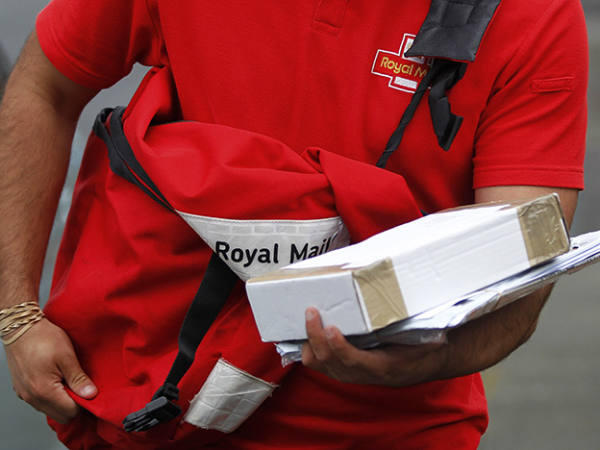- Despite setbacks, wealth manager posts 27 per cent total return since IPO
- “I don’t think you can be agnostic,” says CEO on responsible investing
In 2020, Quilter (QLT) moved its 4,500-strong workforce to remote working almost overnight, announced a strategic review of its international arm, saw a newly acquired subsidiary become the subject of a Financial Conduct Authority (FCA) investigation, and conducted a landmark IT migration project, all the while managing to grow its client asset pile in a turbulent year for financial markets.
Despite the profound change and turbulent conditions, chief executive Paul Feeney strikes an optimistic tone. “Morale has been good, and if anything, productivity has improved,” he notes, outlining how his advisers have saved “a day a week” from online working, and now typically hold between two and three meetings a month with each client.
As with many wealth managers in the Covid-19 era, the FTSE 250 group reports having grown trust and engagement with its existing client base, but has struggled to win new investors amid lockdown measures and social-distancing rules. For Quilter, that task has arguably been complicated by the need to build its profile following its 2018 spin-out from Johannesburg-headquartered financial services giant Old Mutual.
One solution is to position the group as an ESG-focused financial advice-led asset manager, mirroring the efforts of the world’s largest wealth manager, UBS, which last year put sustainable investments at the centre of its private client offering.
“Covid brought three to five years of change forward in three to five months,” says Mr Feeney, reflecting on the shift in sentiment toward ethical investing. “I want us to be the responsible investment wealth manager, and our programmes are in place to make this happen.”
This bias is not new. A spokesperson for Quilter said the group’s sustainable approach to client service – which includes the £161m Quilter Cheviot Climate Assets Fund and tools that allow investors to screen for ethical investment – has “just celebrated its 10-year anniversary”. Quilter Investors, the group’s multi-asset fund provider, also has plans to launch other ESG services in the coming year.
As the company tells it, this focus amounts to pushing on an open door, given a reported increasing interest in responsible investing across a client base whose average age is 64.
“I don’t think you can be agnostic; you have to take a position,” says Mr Feeney. “The trick for me is not so much the manufacturing of the investments, because we believe that ESG will simply become the weave of the investment world fabric; it will simply be the way to invest. Our job is to join up advice with the investment manufacturing process.”
Knowing what this brave new world means for the day-to-day operational concerns of a wealth manager is an altogether different question. But events have provided some room for rationalisation of the cost base.
A new City office, the lease of which was signed just prior to the pandemic’s onset, is now thought to be big enough for all London-based employees once lockdown restrictions are unwound. Flexible working is here to stay, adds Mr Feeney, who expects not to renew some of the leases on Quilter’s remaining 13-strong office network.
A bigger challenge has been a long-delayed and complicated IT platform migration, at a cost of more than £360m since the project started in 2014. That exercise is expected to complete in the coming weeks, says Mr Feeney, which in turn gives the board breathing space to carry out a strategic review of Quilter’s international arm, and to “evaluate its role in delivering Quilter's future growth ambitions”.
Answering the technology concerns has helped the group to perform well since its June 2018 initial public offering. Having recycled the £445m cash raised from the sale of the group’s closed life insurance and pensions book into a stock buyback programme, the shares’ total return has more than doubled those of St James’ Place (STJ) since flotation.
| Price change (%) | Total return (%) | |||
| Cumulative | Annual (CGR) | Cumulative | Annual (CGR) | |
| Quilter | 17.59 | 6.59 | 26.66 | 9.75 |
| FTSE All-Share | -7.66 | -3.09 | 1.07 | 0.42 |
| St. James's Place | 3.31 | 1.29 | 12.77 | 4.85 |
| Source: FactSet | ||||
That has also helped Quilter evade the scrutiny directed to its larger rival, which in October was accused by activist investor PrimeStone Capital of rewarding clients, partners and employees at the expense of shareholders over the past half-decade.
This shouldn’t imply that public life has been a bed of roses for Quilter, which was forced to book a £29m provision with its 2020 half-year results as redress for 266 British Steel workers who were wrongly advised to transfer out of their defined-benefit (DB) pensions by Lighthouse, an advisory group acquired by the wealth manager in 2019.
Mr Feeney acknowledges the problem that legacy advisory relationships – now the subject of an FCA probe – were missed in the due diligence process, but would have been “very difficult to find”. “We will put right any past issues just as if they were Quilter clients at the time,” says the chief executive, who this month assumed the chair of the FCA’s panel of independent practitioners.
The provision “should more than cover” redress to the affected parties. It’s another sign that Quilter can confidently address its issues whenever they appear. Hold at 157p.
Last IC View: Hold, 153p, 11 Aug 2020








